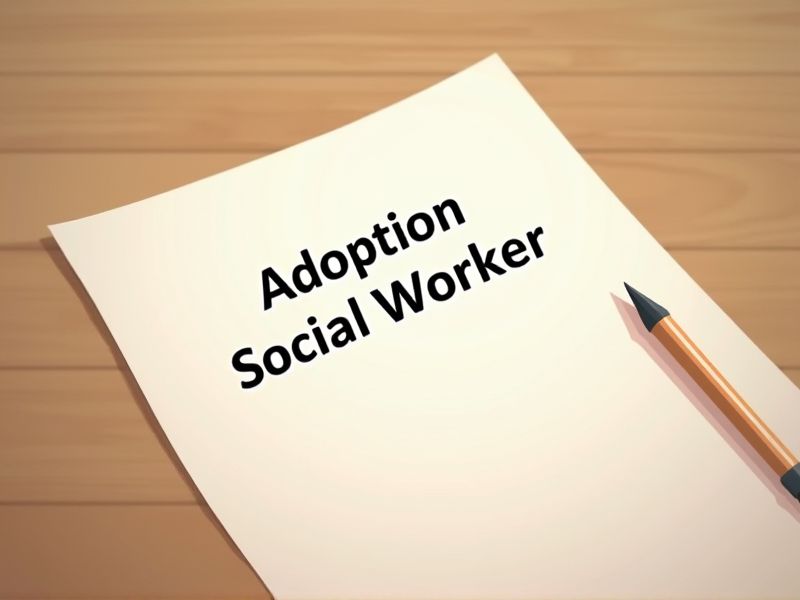
Adoption social workers play a critical role in facilitating the adoption process, ensuring the best interests of both the child and adoptive families. Certification ensures that these professionals have a deep understanding of adoption laws, family dynamics, and child welfare standards. Specialized certifications validate that social workers possess the necessary skills to address complex emotional and legal challenges inherent in adoption cases. Here are some important certifications required for adoption social workers.
Licensed Clinical Social Worker (LCSW)
Licensed Clinical Social Workers possess the expertise needed to address the complex emotional and psychological challenges faced by both adoptive families and children. Their training enables them to conduct thorough assessments and provide appropriate support during the adoption process. They help navigate regulatory and legal requirements, ensuring that all parties involved are informed and compliant. LCSWs facilitate post-adoption support services, aiding in the successful long-term integration of the child into their new family environment.
Licensed Master Social Worker (LMSW)
The licensed master social worker (LMSW) ensures adherence to legal and ethical standards in the adoption process, safeguarding the rights and well-being of all parties involved. An LMSW's specialized training in assessment and counseling facilitates informed and supportive guidance for adoptive families. Their expertise in navigating complex social systems is critical in managing potential challenges that arise during adoption cases. The LMSW's capacity to provide emotional support and advocacy aids in creating stable, nurturing environments for children transitioning into new families.
Adoption and Foster Care Specialist Certification
An Adoption and Foster Care Specialist Certification equips social workers with standardized knowledge and skills crucial for handling complex adoption cases. This certification ensures social workers understand the legal and emotional intricacies of adoption, which enhances their ability to support families effectively. Certification creates a uniform benchmark for professional competence, improving overall trust and outcomes in the adoption process. Certified specialists are better prepared to address potential issues such as attachment disorders, cultural considerations, and the integration of adopted children into new families.
Certified Child Welfare Specialist (CCWS)
Certification as a Child Welfare Specialist enhances the credibility and professional expertise needed for challenging adoption processes. Rigorous training ensures social workers are equipped to handle complex family dynamics and legal requirements. Specialized knowledge gained through certification helps in making informed decisions for children's best interests. Certified professionals are often better prepared to navigate and address diverse cultural issues in adoption cases.
Trauma-Informed Care Certification
Trauma-informed care certification is critical for adoption social workers because it enhances their understanding of the emotional and psychological impacts that prior traumas can have on adopted children. This knowledge equips them with effective strategies to support children through transitions and provides insights into managing potential behavioral challenges. It improves their ability to create plans that prioritize safety and healing. Certification ensures that social workers are aligned with best practices and current standards in adoption care.
Certified Social Work Case Manager (C-SWCM)
Certified Social Work Case Managers (C-SWCM) play a crucial role in adoption as they bring specialized skills in assessing family dynamics and child welfare needs, which enhances placement success. Their certification ensures they are equipped with the latest knowledge on legal and ethical standards crucial for navigating complex adoption cases. Their ability to coordinate multidisciplinary services is vital in addressing the comprehensive needs of adoptive families and children. Evidence shows their involvement reduces the risk of adoption disruptions due to their proficiency in monitoring and supporting the adoption process.
Cultural Competency Training Certification
Cultural competency training certification equips adoption social workers with the ability to effectively engage with diverse family backgrounds, reducing the risk of cultural misunderstandings. This understanding fosters better communication between the social worker and the families, improving trust and collaboration during the adoption process. Given the multicultural nature of many modern families, social workers need to recognize and respect cultural differences to place children in supportive environments. Comprehensive cultural understanding aids in identifying potential challenges that might arise in cross-cultural adoptions, enhancing the long-term success of adoptive placements.
Child Protection Certification
Child protection certification equips adoption social workers with essential skills to identify and address potential risks to a child's safety and welfare. This certification ensures that social workers possess up-to-date knowledge regarding child protection laws and protocols, promoting compliance with legal standards. It fosters trust between social workers, families, and regulatory bodies, improving the overall adoption process. Certification also enhances a professional's credibility and demonstrates commitment to safeguarding children's well-being.
Family Mediation Certification
Family Mediation Certification equips adoption social workers with essential conflict resolution skills, facilitating smoother negotiations between birth and adoptive families. Knowledge from certification aids in managing complex emotions and legal aspects inherent in adoption processes. Being certified enhances the credibility and professionalism of social workers, providing reassurance to clients about their ability to handle sensitive situations. This certification ensures adoption social workers are up-to-date with best practices, improving overall adoption outcomes and reducing litigations.
Ethical Practice in Social Work Certification
Ethical practice in social work certification ensures that adoption social workers adhere to standardized guidelines, protecting the rights and well-being of all parties involved. This certification provides adoption social workers with a framework for making informed decisions, reducing the risk of emotional or legal complications. By having certified ethical practices, trust is built between adoptive families, birth parents, and agencies, enhancing the adoption process's credibility. Certification also helps adoption social workers keep current with best practices and evolving ethical standards, ensuring continuous professional development.
Summary
When you as an adoption social worker obtain additional certifications, your professional credibility tends to increase. This credibility can lead to higher client trust and more successful placements. Enhanced skills from certifications often improve your case management efficiency. Consequently, the overall satisfaction among families and children may rise due to your enhanced expertise.
